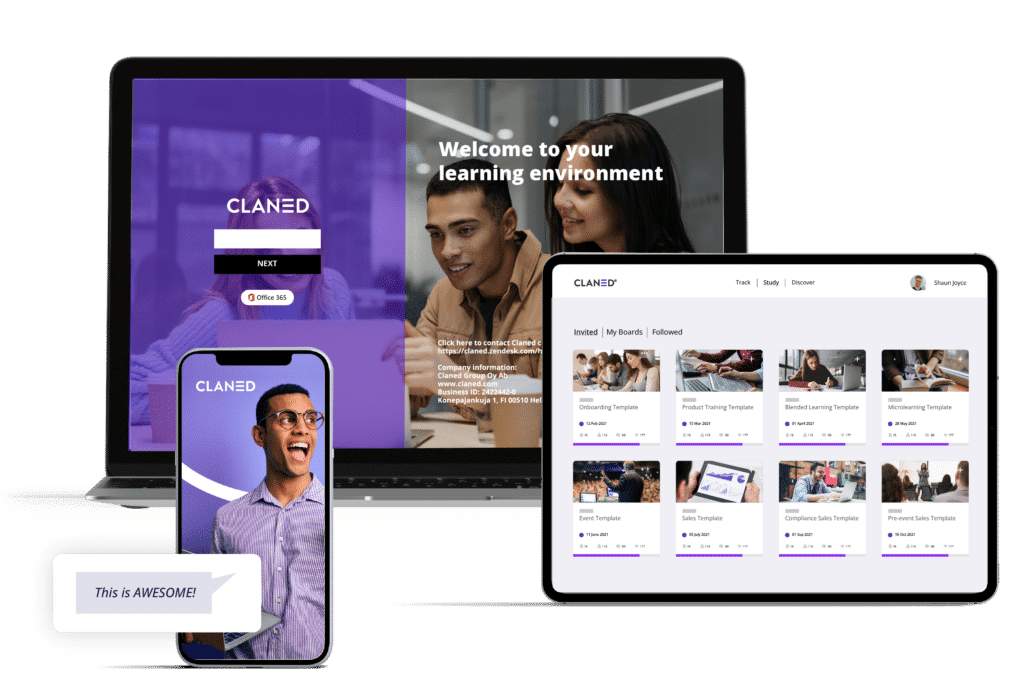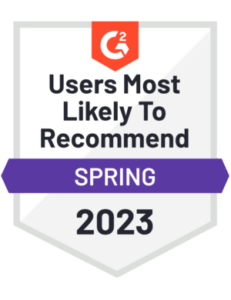As the landscape of education continues to transform, the integration of AI technologies, including the likes of LLMs (Large Language Models) like GPT, holds immense potential for learners, instructors, and course creators alike.
The fast and transformative rise and adoption of AI technology has the power to revolutionize the ways in which we learn and teach, and the potential of ushering in a new era of personalized, efficient, and engaging educational experiences has never been greater.
From the perspective of both learners and educators, the future shines bright with possibilities and challenges to navigate. Now, more than ever, the role of EdTechs, in exploring, developing, and iterating these future possibilities is clear and critical.
The learning landscape we will find ourselves in a few years down the line will arise as a patchwork collage, created through the contributions of many different actors with different goals and aspirations, but sharing a common core theme of enhancing the educational experience.
In this article we will outline and unpack some of the possibilities and challenges faced with the integration of AI and education, and what this means for both learners and educators.
Opportunities Of AI in Education
The follow are some of the possibilities educators, researchers, and edtech can see and may be exploring or developing to make meaningful use of AI technology in learning and education.
Continuous Feedback Loops:
In the dynamic landscape of education, the symbiotic relationship between facilitators, learners, and AI forms a continuous feedback loop that drives growth and improvement.
This loop harnesses AI’s capabilities to provide learners with immediate feedback on assessments, empowering them to track their progress and make informed adjustments to their learning strategies.
Simultaneously, facilitators gain invaluable insights into learners’ performance, enabling them to deliver timely interventions and support.
Learners’ Empowerment through Immediate Feedback:
Imagine a scenario where learners receive instant feedback on quizzes, assignments, and projects. AI’s rapid assessment and feedback mechanisms eliminate the anxiety associated with prolonged waiting periods.
Learners can identify strengths and areas for improvement while the material is still fresh in their minds, facilitating active learning and retention.
This iterative process encourages learners to take ownership of their education, honing their self-regulation skills and enhancing their ability to set achievable goals.
Facilitators’ Insights for Targeted Support:
Facilitators are equipped with a panoramic view of learners’ progress, thanks to AI-generated insights. They gain a deeper understanding of individual learning patterns, allowing them to tailor their teaching strategies to cater to different needs.
For instance, if a facilitator notices a group struggling with a particular concept, they can adapt their approach, providing additional explanations or alternative resources. This personalized support enhances facilitators’ effectiveness and nurtures a dynamic learning environment.
Fostering Critical Thinking:
The fusion of AI and education represents a departure from mere automation; it emerges as a catalyst for cultivating critical thinking—a skill that has risen to paramount importance in our intricately interconnected and complex world. This symbiotic collaboration presents learners with a transformative landscape.
As they engage in partnership with AI for routine tasks, an expansive realm of possibilities unfolds, inviting them to refine and elevate their critical thinking abilities to new heights by expanding the options ideas and possibilities available for a given task and encouraging the use of a critical eye when choosing a direction to follow.
Through this collaborative journey, learners are poised to not only adapt to the evolving landscape but also actively shape it with their analytical prowess.
Liberating Cognitive Bandwidth for Deeper Analysis:
AI’s ability to handle routine tasks, such as generating factual information, liberates learners’ cognitive bandwidth. Instead of memorizing facts, learners can channel their mental energy toward deeper analysis, synthesis, and evaluation.
This shift allows them to delve into complex topics, analyze information from multiple perspectives, and develop a nuanced understanding of the subject matter. As learners engage in higher-order thinking, they cultivate analytical skills that are transferable to various contexts.
Problem-Solving and Creative Exploration:
Collaboration with AI empowers learners to tackle challenges that require creative problem-solving. As AI handles routine calculations and information retrieval, learners can focus on formulating innovative solutions to real-world problems.
This experiential learning cultivates adaptability and resilience, qualities that are essential for thriving in rapidly changing environments. Additionally, learners are encouraged to explore their curiosity and experiment with new ideas, fostering a culture of innovation and creativity.
Shift from Rote Learning to Analytical Thinking:
AI’s role in education marks a departure from traditional rote learning (memorization through repetition). Instead of passively consuming information, learners actively engage with AI-generated content, dissecting and analyzing it critically.
This shift sparks a profound transformation in their approach to learning, equipping them with skills that extend far beyond memorization. Learners emerge as analytical thinkers who can evaluate information, construct arguments, and make informed decisions—a skill set highly sought after in both academic and professional spheres.
By delving into the intricate feedback loop between learners, facilitators, and AI, and exploring the transformative impact of AI on critical thinking, we’re unlocking the doors to an educational landscape that prioritizes active engagement, personalized support, and analytical prowess.
These collaborative opportunities illuminate a future where education transcends boundaries, empowering learners with skills that resonate far beyond the classroom.
Enhanced Personalization and Adaptation
One of the key strengths of AI in education lies in its ability to personalize learning experiences. Learners interact with AI-powered platforms that adapt to their pace, preferences, and learning styles.
This tailoring ensures that each learner embarks on a unique educational journey, maximizing their understanding and retention.
AI technologies may pave the way for a learning environment that not only addresses the diverse needs of each individual but also empowers them to unlock deeper potential.
Ethical Considerations and Challenges of AI in Education
While the benefits are undeniable, we must tread carefully. Ethical concerns surrounding data privacy and the potential for bias in AI algorithms need to be addressed. Maintaining a balance between AI assistance and human interaction is essential, as education thrives on human connections and mentorship.
As AI continues to reshape the educational landscape, it’s essential to critically examine the challenges that emerge, ensuring a balanced and responsible integration.
With that in mind, let us now shift our focus to some of the challenges integrating AI with learning and education faces. It’s no secret that the learning and education community is split on to what extent AI can be meaningfully incorporated to education and learning systems and there is no doubt that there are indeed real challenges to be solved and consensus to be reached to ensure a fair, equitable, and effective deployment of AI technology in learning and education.
The following are a some of the current challenges to be overcome that educators, researchers, edtechs and policy makers are currently discussing.
Cheating and Academic Integrity
With AI’s assistance, students might be tempted to take shortcuts or engage in unethical practices. The ease of accessing information through AI models like GPT could lead to plagiarism and a decline in original critical thinking.
Educational institutions must develop robust strategies to detect and prevent such misconduct while emphasizing the value of genuine learning experiences.
Loss of Essential Skills
The convenience of AI-generated content might inadvertently contribute to a decline in certain skills, such as handwriting, spelling, and mental arithmetic.
Relying heavily on AI for tasks that were previously done manually could erode these foundational skills. Striking a balance between AI-assisted tasks and skill development becomes paramount.
Ethical and Equitable Access
As AI-powered education gains traction, concerns about equity and access come to the forefront. Not all students have equal access to technology, potentially exacerbating existing educational inequalities.
Schools and institutions must ensure that AI tools are available to all, irrespective of socioeconomic background, to avoid further disparity.
Data Privacy and Security
The collection of student data by AI-driven platforms raises valid concerns about privacy and security. Educational institutions must establish stringent data protection measures to safeguard sensitive student information from breaches or misuse.
Transparency in data collection practices and clear consent mechanisms are essential components of responsible AI implementation.
Algorithmic Bias and Fairness
AI algorithms are not immune to bias, often reflecting the biases present in the data they are trained on. This could perpetuate existing prejudices and stereotypes, affecting both content and assessment.
Vigilance is required to identify and rectify bias in AI systems, ensuring that educational experiences are inclusive and unbiased.
Teacher-Student Interaction
While AI can enhance educational experiences, there’s concern about the potential reduction in meaningful teacher-student interactions.
The personal connection between educators and learners plays a vital role in holistic development. Finding ways to balance AI assistance with nurturing human relationships is crucial for a well-rounded education.
Impact on AI in Future Job Market
The rapid evolution of AI might lead to apprehensions about the future job market. Will AI replace certain roles? It’s important to address these concerns by emphasizing the unique skills and qualities that human educators bring, such as empathy, adaptability, and mentorship.
As we navigate these challenges, it’s clear that a proactive approach is necessary. Educators, institutions, and policymakers must collaborate to develop ethical frameworks that guide AI integration in education. Transparent guidelines on the use of AI, along with ongoing training for educators, will foster responsible and effective implementation.
The path ahead involves careful consideration, adaptation, and collaboration. By addressing challenges head-on and embracing AI as a tool for enhancement rather than replacement, we can create an educational landscape that harnesses the benefits of AI while upholding the values of integrity, equity, and holistic learning.
The Road Ahead: A Collaborative Journey
AI’s impact on education is most effective when it’s viewed as a collaborator rather than a replacement. While AI can handle repetitive tasks, human instructors bring empathy, creativity, and critical thinking to the table. The fusion of human expertise and AI capabilities promises an enriched learning experience.
The integration of AI technologies, including advanced language models like GPT, is reshaping the landscape of education. From personalized learning journeys to efficient assessments, the potential is vast. However, as we embrace this transformation, it’s crucial to navigate the challenges responsibly.
The future of education is a harmonious blend of AI-driven innovation and human ingenuity, ensuring that learners receive the best of both worlds.
This is just the beginning of an exciting exploration into the world of AI and learning. Stay tuned to our blog as we continue this exploration.







